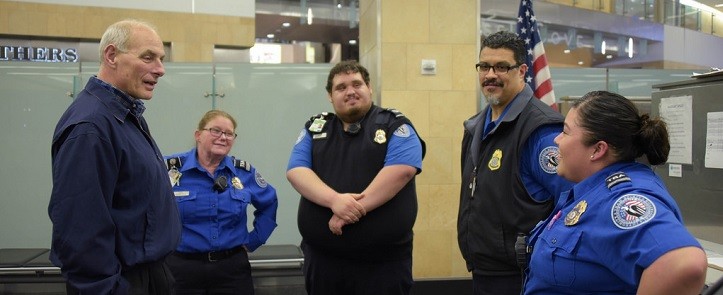

TSA Punishes Whistleblowers for Reporting Rampant Misconduct Among Managers


Persistent misconduct by managers at the Transportation Security Administration (TSA) often goes unpunished and whistleblowers who report it as well as airport safety risks are penalized by senior officials, a bipartisan congressional investigation has concluded. The multi-billion-dollar government agency created after 9/11 to secure the nation’s transportation system operates under the Department of Homeland Security (DHS) and has around 65,000 employees. For nearly a decade Judicial Watch has reported extensively—and uncovered records—about its serious transgressions and failure to adequately fulfill its mission. The TSA is charged with securing transportation by adequately screening luggage, passengers and properly vetting foreign flight students. Instead, the agency is best known for its shameful security lapses and efforts to cover them up. In this case, DHS obstructed the federal probe by withholding documents and information from Congress.
For the last three years a probe led by the House Committee on Oversight and Government Reform has primarily focused on retaliation against TSA whistleblowers who report malfeasance within the ranks or security lapses. Among the preferred methods of punishment are cumbersome reassignments up to thousands of miles from home. Earlier this year three TSA supervisors punished with relocation after exposing airport safety risks received compensatory damages and two were allowed to return to their original location. The Office of Special Counsel (OSC), the agency charged with protecting federal employees from retribution for whistleblowing, represented the supervisors who worked as deputy federal security directors in Hawaii before getting shipped off to California and Washington State. The TSA supervisors had reported mismanagement and distressingly lax airport security protocols.
That type of retaliation is par for the course at the TSA, according to the broad investigation conducted by Congress. In its lengthy report, “Misconduct, Retaliation, and Obstruction at the Transportation Security Administration,” the House Oversight and Government Reform Committee writes that it found “recurrent misconduct with minimal consequences” at the TSA. This includes sexual harassment and relocation of whistleblowers suspected of having unauthorized contact with the media. “The Committee found current and former senior TSA managers engaged in misconduct with alarming frequency, and routinely received favorable treatment during the disciplinary process,” the report states, adding that senior officials often circumvented the disciplinary process to avoid repercussions for the actions. “The toxic combination of unchecked misconduct by senior officials and retaliation against rank-and-file whistleblowers undermined employee morale, reflected in the agency’s astronomical attrition rates (as high as 20 percent in some segments of the workforce during the period in question) and abysmal ranking in a government-wide job satisfaction survey (336 out of 339 agencies and components in 2017),” according to the report.
A multitude of alarming examples are embedded in the document, including a deputy assistant administrator who should have been fired after speeding down a one-way street in the wrong direction while intoxicated then lying to police. Other TSA officials who escaped discipline include supervisors who engaged in inappropriate behavior with subordinates, a director at a Midwest airport who made sexually and racially offensive comments and engaged in inappropriate conduct and a slew of sexual misconduct by high-ranking officials. “The Committee received examples of senior level officials committing egregious acts of misconduct, being investigated for those acts, and then receiving a mild punishment not rising to the level required by the Table of Penalties,” the House report states. “This pattern of mitigation allowed senior level managers at TSA to continue their misconduct, and consequently, decrease morale within the agency.”
Among those who suffered retaliation for reporting bad behavior is a TSA security director who testified before Congress about the reassignments that he told lawmakers “have been punitively used by TSA senior leadership as a means to silence dissent, force early retirement or resignations.” The chastened official’s name is Andrew Rhoades and this is what he told Congress under oath after getting deployed from his longtime home in Minnesota to Florida for denouncing wrongdoing: “Senior leader misconduct and retaliation, if left unaddressed, will place the American public at risk as managers are more worried of retaliation from their own supervisors than they are focused on defeating the threat. Directed reassignments, retaliation and misconduct are inextricably intertwined and help explain why the TSA underperforms.”















